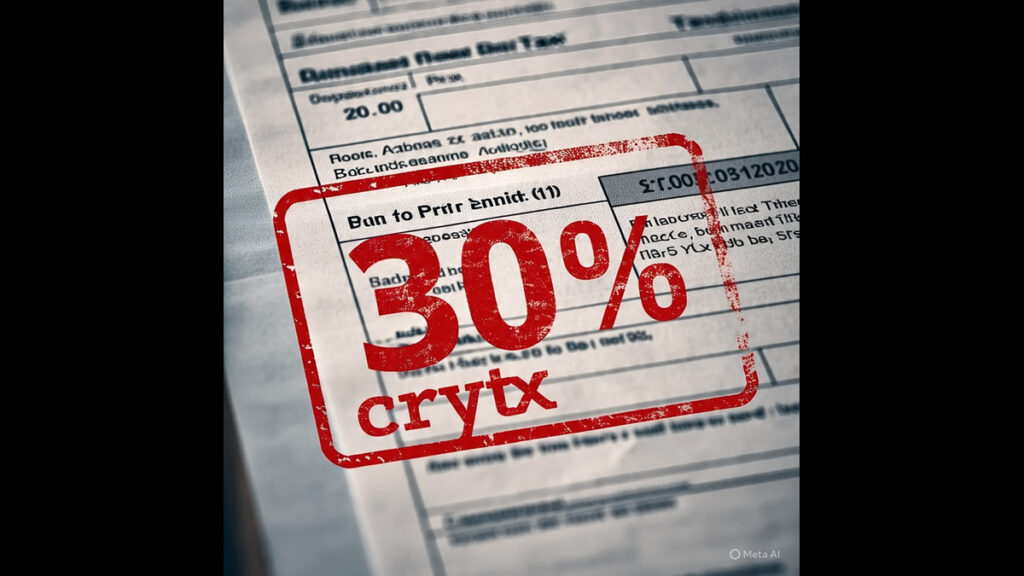📘 What Are Cryptocurrencies?
Cryptocurrencies are digital currencies that use blockchain technology to record and verify transactions.
Examples include Bitcoin, Ethereum, Dogecoin, and Solana.
They work without a central authority (like a bank or government) and are often traded across borders.

🌐 Why Governments Want to Tax Crypto
Although cryptocurrencies are digital, they create real profits for people who:
- Buy low and sell high (capital gain)
- Receive crypto as salary or payment
- Mine or stake crypto to earn rewards
Since these profits are real income, governments want to regulate and tax them like other assets.
🧾 How Is Crypto Taxed in India?
In India, the taxation of cryptocurrencies is strict and specific. According to the Union Budget 2022:
| Rule | Explanation |
|---|---|
| Flat 30% Tax | On all profits from transfer of virtual digital assets (VDAs) |
| 1% TDS | On every transaction (above ₹10,000) under Section 194S |
| No Deductions Allowed | Except cost of acquisition |
| Loss Not Adjustable | Loss from crypto can’t be set off against other income |

🌎 How Other Countries Tax Crypto
| Country | Tax Treatment |
|---|---|
| USA | Treated as property; taxed on capital gains |
| UK | Capital gains tax applied on selling crypto |
| Germany | No tax if held for 1 year or more |
| UAE | No personal income tax – crypto is tax-free |
| Japan | Treated as miscellaneous income – progressive tax rates |
🛑 Regulatory Challenges with Crypto
Cryptocurrencies are:
- Anonymous → hard to trace
- Volatile → prices change rapidly
- Cross-border → hard to control by national laws
- Used in money laundering and tax evasion if unregulated
This makes crypto taxation a complex issue for most governments.

🧠 Real-World Example
Rahul buys Bitcoin at ₹2 lakh and sells it for ₹3 lakh.
Profit = ₹1 lakh
Tax = ₹30,000 (30% flat rate)
Also, the buyer who pays Rahul must deduct 1% TDS = ₹3,000 at the time of payment.
🎓 Why Students Must Know This
- Commerce exams like NET, SET, M.Com, MBA include new-age tax topics
- Cryptocurrency is a trending topic in finance and accounting interviews
- Helps you understand digital economy laws and taxation

📚 Key Terms to Remember
| Term | Meaning |
|---|---|
| VDA (Virtual Digital Asset) | Any crypto, NFT, or blockchain-based digital asset |
| Capital Gains | Profit from selling crypto at a higher price |
| TDS (Tax Deducted at Source) | 1% deduction on crypto transactions |
| Cost of Acquisition | Original purchase price of crypto |
| Income Tax Act 1961 – Section 115BBH | Special section for taxing crypto in India |
✅ Conclusion
Cryptocurrency is no longer just a digital trend – it’s a taxable reality.
As a student of commerce, finance, or law, you must understand how digital currencies are treated under tax systems.
Knowing crypto tax laws not only helps in exams but also prepares you for modern finance careers.
